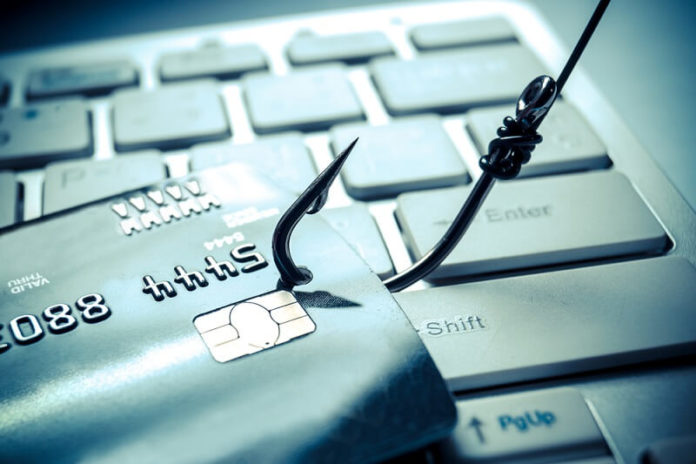Nowadays, confidential information is stored and used by businesses digitally. While it is much more convenient for companies to store data digitally, this unfortunately also means that these files are more vulnerable to hacker attacks. Attackers can gain access to company data in a variety of ways, including phishing, a technique that uses unsuspecting employees as a gateway.
Many large companies are investing huge amounts of money to protect themselves from cybercriminals. Gartner reported that the global information security market is forecasted to reach $170.4 billion in 2022.
The numbers in the forecasts of Cybersecurity spendings and the increasing phishing attacks are big indicators to why every business should make digital security a priority. There are several ways to protect your business and your data from such attacks. In our article, you’ll find useful tips on how you can protect your business from phishing attacks.
How to improve the security of your business?
Usually, Phishing attacks are carried out via the channel of email, but can also be carried out via other channels such as text messages or even phone calls.
Perimeter Protection
The aim of perimeter protection is to install an effective firewall – router and software. It will block the flow of dangerous traffic from the Internet. Also, if you have a firewall, cybercriminals will not be able to take data outside your corporate network.
It is best to consult with your ISP to successfully organize your firewall.
Protecting the file server
Have a separate computer or server that will store all your files. Protect it from malicious software with a good antivirus program. Arrange an automatic daily backup of all data to this computer or server.
Furthermore, you can use an SPF record to prevent email phishing. Sender Policy Framework (SPF) is an email authentication method that defines mail servers that are allowed to send an email on behalf of your organization’s domain. SPF helps protect your organization’s domain from spoofing and ensures that emails are delivered correctly. Mail servers accepting emails from your domain can use SPF to verify that these emails were actually sent by your organization. Remember to use the SPF record check tool to make sure everything is in order.
Protecting your and employees’ computers
It is imperative to protect your work computer, as well as the computers of all employees. Here the solution will be a multi-level security system (program control, proactive protection against malicious software, etc.).
It will also be useful to use a special program for storing encrypted passwords on all computers of your employees.
Using VPN
VPN is a technology that allows you to encrypt your Internet connection and thus protect your traffic from eavesdropping and other outside interference. It is also used when making electronic payments, in particular when calculating with bitcoins.
Using a free VPN is often ineffective and can even be dangerous. If you want to protect yourself from cybercriminals, you should go for trusted companies.
Fewer mobile devices
Research shows that companies that allow their employees to use tablets and smartphones for work purposes are significantly more likely to be exposed to cyberattacks.
Mobile devices are highly vulnerable to online fraudsters. Therefore, you should limit their use for work purposes as much as possible. For example, prohibit their use to work with strategically important information.
Be careful about links
Phishing is one of the most common ways to get passwords from your accounts. Therefore, in no case follow suspicious links from your work computer, which may be found, for example, in emails.
Security policy
Employees must remember that they are also responsible for the information security of the company in which they work. For them, you need to create clear rules that will help minimize the likelihood of hacking. Inform them not to click on suspicious links.
Use strong passwords
Many people think that this is a trifle. However, an insufficiently strong password can lead to the theft of important information.
All passwords must be at least 9 characters long, including numbers and capital letters. The password should not be an ordinary word, as in this case, it is very easy to crack it.
Use multi-factor authentication
The best way to protect your business from cyberattacks is to use multi-factor authentication for your employees. In other words, new connections require confirmation by phone, email or code before account information is provided. Use this strategy to stop hackers as they are unlikely to gain access to the additional device.
Restricting employee access to confidential information
To reduce the risk of a system breach, ensure that only the most trusted team members have credentials to access sensitive data. Also, all corporate accounts of departing employees must be deleted. Don’t forget to change passwords for a leaving employee who can reverse and jeopardize confidential documents.
Conclusion
Emails are a professional way to interact with customers and employees and may contain certain information that you never want to lose. Using the methods described, you can significantly reduce the number of cyberattacks and significantly protect your business from phishing in 2021. These methods are quite affordable in terms of their cost.
Araz Guidanian is part of the content team at Easydmarc. She writes content on Cybersecurity and Domain Protection. Twitter handle @ArazGuidanian
Phishing stock photo by wk1003mike/Shutterstock







